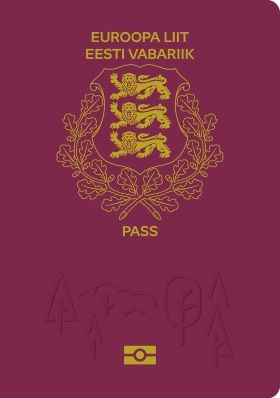Immigration, Refugees and Citizenship Canada is the department of the Government of Canada with responsibility for matters dealing with immigration to Canada, refugees, and Canadian citizenship. The department was established in 1994 following a reorganization.
The Bureau of Consular Affairs (CA) is a bureau of the United States Department of State reporting to the under secretary of state for management. The mission of the Bureau is to administer laws, formulate regulations and implement policies relating to the broad range of consular services and immigration. As of 2021, the bureau is headed by the Assistant Secretary of State for Consular Affairs, Rena Bitter.

Passport Canada was an independent, special operating agency of the Government of Canada with bureaucratic oversight provided through Foreign Affairs and International Trade Canada. Formerly known as the Passport Office prior to June 2006, Passport Canada was responsible for issuing, revoking, withholding, and recovering Canadian passports, and it was the sole issuer of them.

The Immigration and Refugee Protection Act (IRPA) is an Act of the Parliament of Canada, administered by Immigration, Refugees and Citizenship Canada (IRCC) and Canada Border Services Agency (CBSA), that replaced the Immigration Act, 1976 in 2002 as the primary federal legislation regulating immigration to Canada. The "Immigration and Refugee Protection Regulations" (IRPR) specify how provisions of IRPA are to be applied.

United States passports are passports issued to citizens and nationals of the United States of America. They are issued exclusively by the U.S. Department of State. Besides passports, limited-use passport cards are issued by the same government agency subject to the same requirements. It is unlawful for U.S. citizens and nationals to enter or exit the country without a valid U.S. passport or passport-replacement document compliant with the Western Hemisphere Travel Initiative, though there are many exceptions; waivers are generally granted for U.S. citizens returning without a passport, and the exit requirement is not enforced. As of July 2023, United States passport allows visa-free travel to 186 countries and territories, ranking as the 8th most powerful in the world in terms of travel freedom.
Law enforcement in Malaysia is performed by numerous law enforcement agencies and primarily the responsibility of the Royal Malaysia Police. Like many federal nations, the nature of the Constitution of Malaysia mandates law and order as a subject of a state, which means that local government bodies also have a role to play in law enforcement, therefore the bulk of the policing lies with the respective states and territories of Malaysia. Below are some of the law enforcement bodies and agencies of Malaysia.
A gaming control board (GCB), also called by various names including gambling control board, casino control board, gambling board, and gaming commission, is a government agency charged with regulating casino and other types of gaming in a defined geographical area, usually a state, and of enforcing gaming law in general.

Canadian immigration and refugee law concerns the area of law related to the admission of foreign nationals into Canada, their rights and responsibilities once admitted, and the conditions of their removal. The primary law on these matters is in the Immigration and Refugee Protection Act, whose goals include economic growth, family reunification, and compliance with humanitarian treaties.

Polish nationality law is based primarily on the principle of jus sanguinis. Children born to at least one Polish parent acquire Polish citizenship irrespective of place of birth. Besides other things, Polish citizenship entitles the person to a Polish passport.
Law enforcement in Indonesia is mainly performed by the Indonesian National Police (POLRI), together with other law enforcement agencies which are under the president, a certain ministry or State-owned company (BUMN) which perform policing duties for a certain public service, these law enforcement agencies are under supervision and are trained by the Indonesian National Police. The Indonesian National Police is basically the national civilian police force of the country responsible for enforcing law and order of the state.

An Estonian passport is an international travel document issued to citizens of Estonia, and may also serve as proof of Estonian citizenship. Besides enabling the bearer to travel internationally and serving as indication of Estonian citizenship, the passport facilitates the process of securing assistance from Estonian consular officials abroad or other European Union member states in case an Estonian consular is absent, if needed. If an Estonian citizen wishes to receive an identity document, especially an Estonian passport, somewhere other than the foreign representation of the Republic of Estonia, then the bearer of the Estonian citizenship staying abroad could receive the travel documents in embassies of any EU country worldwide by paying 50 Euro. Many countries require passport validity of no less than 6 months and one or two blank pages.

A Bulgarian passport is an international travel document issued to nationals of Bulgaria, and may also serve as proof of Bulgarian citizenship. Besides enabling the bearer to travel internationally and serving as indication of Bulgarian citizenship, the passport facilitates the process of securing assistance from Bulgarian consular officials abroad or other European Union member states in case a Bulgarian consular is absent, if needed.

The European Union itself does not issue ordinary passports, but ordinary passport booklets issued by its 27 member states share a common format. This common format features a coloured cover emblazoned—in the official language(s) of the issuing country —with the title "European Union", followed by the name(s) of the member state, the heraldic "Arms" of the State concerned, the word "PASSPORT", together with the biometric passport symbol at the bottom centre of the front cover.

Estonian citizenship law details the conditions by which a person is a citizen of Estonia. The primary law currently governing these requirements is the Citizenship Act, which came into force on 1 April 1995.

The Police and Border Guard Board is a unified national governmental agency within the Estonian Ministry of Interior and is responsible for law enforcement and internal security in the Republic of Estonia.
The U visa is a United States nonimmigrant visa which is set aside for victims of crimes who have suffered substantial mental or physical abuse while in the U.S. and who are willing to assist law enforcement and government officials in the investigation or prosecution of the criminal activity. It permits such victims to enter or remain in the US when they might not otherwise be able to do so. An advantage that comes along with the acceptance of a U-visa is the individual will have deportation protection which is important when they are collaborating with law enforcement.
The Estonian Foreign Intelligence Service is the foreign intelligence service of the Republic of Estonia. The Foreign Intelligence Service coordinates with all Estonian intelligence functions, collects intelligence concerning foreign interests and activities, and transmits information to the President, Prime Minister, the General Staff of the Estonian Defence Forces, the Interior Minister, the Foreign Minister, and the Minister of Defence. Since November 2022 the Director General of the Foreign Intelligence Service is Kaupo Rosin.

The European Union Agency for the Operational Management of Large-Scale IT Systems in the Area of Freedom, Security and Justice (eu-LISA) is an agency of the European Union (EU) that was founded in 2011 to ensure the uninterrupted operation of large-scale IT systems within the area of freedom, security and justice (AFSJ), that are instrumental in the implementation of the asylum, border management and migration policies of the EU. It began its operational activities on 1 December 2012. The current establishing regulation entered into force on 11 December 2018, repealing the previous regulation and expanding the Agency's mandate. The new mandate strengthens the Agency's capacity to improve, design and develop information systems for European security, border management and migration, and broadens the scope of the Agency's work on research, innovation, testing and on the possibility to support the development of pilot projects and proofs of concept.

The IT and Development Centre, Ministry of the Interior is an Estonian government agency under the Ministry of the Interior responsible for providing the developing ICT services mainly to Police and Border Guard Board, Estonian Rescue Board, Estonian Emergency Response Centre, Estonian Academy of Security Sciences and the Ministry of the Interior.










